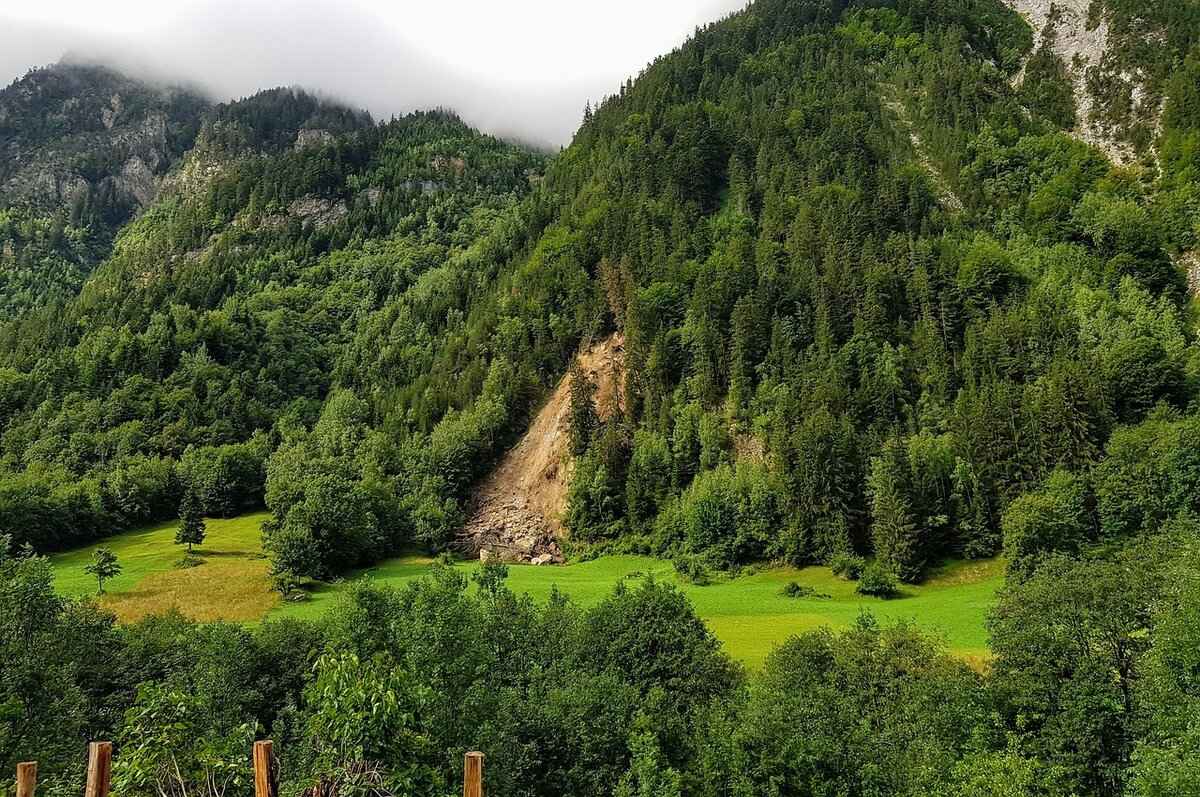Slip dresses have captivated fashion enthusiasts for decades, showcasing their enduring charm as a versatile wardrobe staple. These elegant pieces seamlessly transition across seasons, making them a must-have for anyone looking to elevate their style. In this article, we will delve into the various styles of slip dresses, explore their timeless appeal, and uncover why they remain essential in any fashion-forward wardrobe.
A slip dress is characterized by its lightweight fabric, typically featuring thin straps and a flowing silhouette. Originally designed as undergarments, slip dresses have evolved into a fashion statement embraced by many. Their simplicity allows for endless styling possibilities, making them suitable for both casual and formal occasions.
The timelessness of slip dresses lies in their versatility. They can be dressed up or down, making them perfect for a variety of settings. Whether you’re attending a wedding or running errands, a slip dress can adapt to your needs with the right accessories and layering techniques.
Silk slip dresses are the epitome of luxury and sophistication. Their soft texture and delicate drape make them ideal for formal events or romantic dinners. Pairing a silk slip dress with statement jewelry and heels can create an effortlessly chic look that turns heads.
For a more relaxed vibe, cotton slip dresses are a fantastic choice. These dresses offer comfort without sacrificing style, making them perfect for warm-weather outings. Pairing a cotton slip dress with sandals or sneakers creates a laid-back yet fashionable outfit.
Styling a slip dress can vary widely depending on the occasion. Here are some tips:
- Accessorizing for Casual Outings: For a laid-back look, pair your slip dress with chunky sneakers and a denim jacket. This combination is perfect for coffee dates or casual outings.
- Dressing Up for Formal Events: Elevate your slip dress for formal occasions by adding statement jewelry and high heels. A fitted blazer can enhance the overall sophistication of the ensemble.
While solid colors like black and nude are classic choices, patterns and prints can add a modern twist to slip dresses. Floral prints, polka dots, and stripes are popular options that allow wearers to express their personal style.
Layering is essential for creating versatile outfits with slip dresses. Consider these techniques:
- Seasonal Layering Tips: In colder months, pair your slip dress with a cozy knit sweater or a long coat for warmth and dimension.
- Summer Layering: During summer, lightweight cardigans or sheer tops can provide coverage while keeping your outfit breezy and comfortable.
Finding the perfect slip dress is easier than ever, with numerous retailers offering a range of styles:
- High-End Brands: Luxury brands often feature exquisite designs and high-quality fabrics, ensuring longevity and timeless appeal in your wardrobe.
- Affordable Options: Many affordable brands provide stylish slip dresses without compromising quality, making them accessible for every budget.
In conclusion, slip dresses represent a timeless fashion choice that transcends seasonal trends. Their versatility, comfort, and elegance make them essential pieces for any wardrobe. By understanding how to style and accessorize them, you can create a variety of looks that reflect your unique style.

What is a Slip Dress?
A slip dress is a versatile and elegant piece of clothing that has captured the hearts of fashion enthusiasts worldwide. Originally designed as undergarments, slip dresses have transitioned into a stunning outerwear option that can be styled for a myriad of occasions. Characterized by their thin straps and flowing silhouette, these dresses are often made from luxurious materials like silk or lightweight cotton, making them a staple in any wardrobe.
The popularity of slip dresses can be attributed to their timeless appeal and effortless style. They can be easily dressed up or down, making them suitable for everything from casual brunches to formal events. The simplicity of their design allows for endless possibilities when it comes to layering and accessorizing. This versatility ensures that slip dresses remain relevant, regardless of changing fashion trends.
When it comes to luxury, nothing beats a silk slip dress. The soft texture and graceful drape of silk create an air of sophistication, making it the perfect choice for special occasions. Pairing a silk slip dress with statement jewelry and elegant heels can elevate your look to new heights. Whether it’s a wedding or a fancy dinner, a silk slip dress is guaranteed to turn heads.
For a more relaxed vibe, cotton slip dresses are ideal. They offer comfort without sacrificing style, making them perfect for everyday wear. A cotton slip dress can be paired with sneakers for a casual outing or dressed up with a denim jacket for a chic look. Their breathable fabric makes them especially suitable for warm-weather outings, ensuring you stay cool and stylish.
Styling a slip dress can vary widely depending on the occasion. The right accessories can transform a simple slip dress into a statement piece. For casual outings, consider pairing your slip dress with chunky sandals or ankle boots for a trendy look. If you’re heading to a formal event, adding a structured blazer and elegant heels can enhance the overall sophistication of your outfit.
Slip dresses come in a variety of colors and patterns, allowing you to express your personal style. While classic black and white slip dresses are timeless, vibrant colors like red or emerald green can make a bold statement. Patterns such as floral prints, polka dots, and stripes add a modern twist, making them perfect for fashion-forward individuals.
Layering is essential for creating versatile outfits with slip dresses. In colder months, consider pairing your slip dress with a cozy knit sweater or a long coat. This not only keeps you warm but also adds dimension to your overall look. For summer, lightweight cardigans or sheer tops can provide coverage while maintaining a breezy and comfortable outfit.
Finding the perfect slip dress is easier than ever, with numerous retailers offering a range of styles. From high-end boutiques to fast-fashion outlets, there’s something for every budget. Luxury brands often feature exquisite designs and high-quality fabrics, making them a worthwhile investment. On the other hand, many affordable brands provide stylish options without compromising on quality, ensuring that everyone can enjoy this timeless fashion piece.

Why Are Slip Dresses Timeless?
Slip dresses have become a fashion essential due to their remarkable versatility and timeless appeal. Their elegant silhouette and minimalist design allow them to be effortlessly styled for various occasions, making them a staple in many wardrobes. Let’s delve deeper into why slip dresses continue to captivate fashion enthusiasts across the globe.
The versatility of slip dresses stems from their simple yet chic design. They can be dressed up or down, making them suitable for events ranging from casual brunches to formal dinners. This adaptability is largely due to their ability to be layered and accessorized easily. For instance, a slip dress can be paired with a cozy cardigan and sneakers for a day out or elevated with a tailored blazer and heels for an evening event.
One of the key features of slip dresses is their ability to adapt to different weather conditions through layering. In colder months, you can wear a slip dress over a fitted turtleneck, adding warmth while maintaining style. Pairing it with knee-high boots and a long coat enhances the look, creating a sophisticated ensemble suitable for winter outings.
During the summer months, slip dresses shine as a go-to choice for warm-weather fashion. Lightweight fabrics keep you cool, and adding a sheer blouse or a denim jacket can provide just the right amount of coverage without sacrificing comfort. This versatility allows you to transition seamlessly from day to night.
Accessorizing is crucial for maximizing the potential of a slip dress. For casual outings, consider pairing your dress with a wide-brimmed hat and sandals. This effortless combination is perfect for beach trips or picnics in the park. On the other hand, for a more polished look suitable for formal events, opt for statement jewelry, such as chandelier earrings or a bold necklace, and finish the outfit with strappy heels. A clutch bag can also add a touch of elegance, making the outfit suitable for evening affairs.
When it comes to slip dresses, various styles cater to different tastes. Classic silk slip dresses are often favored for their luxurious feel and sophisticated drape. Meanwhile, cotton slip dresses are great for everyday wear, offering a more relaxed vibe. Additionally, slip dresses come in a variety of colors and patterns, allowing individuals to express their personal style. Floral prints, polka dots, and stripes are popular choices that can add a modern twist to this timeless piece.
Finding the perfect slip dress involves exploring a range of retailers. High-end brands often showcase exquisite designs made from premium fabrics, making them a worthy investment. However, many affordable options also exist, allowing fashion lovers to stay trendy without stretching their budget. Online platforms and local boutiques frequently offer a variety of styles, ensuring there’s something for everyone.
Ultimately, the enduring appeal of slip dresses lies in their ability to adapt to changing fashion trends while maintaining a sense of classic elegance. Their versatility, ease of styling, and comfort make them a go-to choice for many. Whether you’re dressing for a casual day out or a formal evening event, the slip dress remains a timeless wardrobe staple that continues to inspire and delight.

Classic Silk Slip Dresses
are the epitome of luxury and sophistication. These garments are not just clothing items; they represent a timeless fashion statement that transcends trends and seasons. The soft texture of silk, combined with its delicate drape, makes these dresses perfect for a variety of occasions, from casual outings to formal events, adding an air of elegance to any look.
Originally designed as undergarments, slip dresses have evolved into a staple piece in many wardrobes. Their versatile nature allows them to be dressed up or down, making them suitable for both day and night wear. The simplicity of their design is what makes them so appealing; they can be easily layered or accessorized to fit any style.
When it comes to styling a silk slip dress, the possibilities are endless. For a more casual look, consider pairing your slip dress with a denim jacket and ankle boots. This combination not only provides comfort but also adds a chic vibe, perfect for brunch with friends or a casual day out. On the other hand, to elevate the dress for a formal occasion, you can opt for statement jewelry, high heels, and a tailored blazer. This ensemble exudes sophistication and is ideal for evening events or weddings.
Another aspect that makes silk slip dresses a must-have in your wardrobe is their ability to transition seamlessly through the seasons. In the warmer months, you can wear them alone or with lightweight cardigans, allowing for a breezy and comfortable outfit. During the colder months, layering with a fitted turtleneck or a cozy sweater can not only keep you warm but also enhance the overall look, providing depth and texture to your outfit.
As for colors and patterns, while classic black and white silk slip dresses are timeless, don’t shy away from experimenting with other shades. Jewel tones like emerald green, deep blue, or rich burgundy can add a pop of color and make a bold statement. Additionally, floral prints or subtle patterns can bring a modern twist to the classic silhouette, allowing you to express your personal style.
In terms of where to find these luxurious pieces, many retailers offer a wide range of options. High-end brands often feature exquisite designs and high-quality fabrics, ensuring that your investment will last for years. However, there are also affordable options available that maintain style without breaking the bank. Brands that focus on sustainable fashion often provide beautiful silk slip dresses that are both ethical and chic.
In summary, are a versatile and elegant addition to any wardrobe. Their timeless appeal, combined with the ability to adapt to various occasions and seasons, makes them a fashion essential. By understanding how to style and accessorize these dresses, you can create stunning looks that will never go out of fashion.

Casual Cotton Slip Dresses
When it comes to effortless style, stand out as a quintessential choice for any wardrobe. These dresses embody a relaxed vibe, making them perfect for everyday wear. The beauty of cotton lies in its breathability and comfort, allowing you to move freely while still looking chic.
Cotton slip dresses are made from a natural fabric that is soft against the skin, making them ideal for warm-weather outings. Unlike heavier materials, cotton allows for ventilation, ensuring you stay cool during hot summer days. Their lightweight nature means they can be easily packed for travel, making them a versatile option for vacations or weekend getaways.
The versatility of cotton slip dresses means they can be styled in numerous ways to suit different occasions. Here are some practical tips:
- Layer with Denim: For a casual brunch or a day out, pair your slip dress with a classic denim jacket. This combination adds a relaxed touch while keeping you comfortable.
- Footwear Choices: Sneakers or flat sandals are perfect for a laid-back look. Opt for white sneakers for a trendy vibe or colorful sandals to add a pop of color.
- Accessorize Wisely: Incorporate minimalistic jewelry, such as hoop earrings or a delicate necklace, to enhance your look without overwhelming it.
While solid colors like black, white, and navy are timeless, don’t shy away from experimenting with patterns. Floral prints, stripes, and polka dots can add a fun twist to your cotton slip dress, allowing you to express your personality. Choose colors that complement your skin tone and reflect your style. Pastel shades are perfect for spring, while bold colors can make a statement in summer.
Cotton slip dresses can be worn year-round with the right layering techniques:
- Summer Styling: During the warmer months, keep it simple. Wear your slip dress with a wide-brimmed hat and sunglasses for a chic beach look.
- Fall and Winter Layers: As temperatures drop, add a cozy cardigan or a fitted turtleneck underneath your slip dress. Pair it with ankle boots for a stylish, warm outfit.
When searching for the perfect cotton slip dress, consider both high-end and affordable options. Many retailers offer a variety of styles and colors to fit every budget:
- High-End Brands: Look for luxury brands that often use high-quality cotton for a more durable and stylish option.
- Affordable Retailers: Fast-fashion brands provide trendy designs at lower prices, allowing you to stay fashionable without overspending.
In conclusion, are a must-have in any fashion-forward wardrobe. Their versatility, comfort, and timeless appeal make them an excellent choice for various occasions. Whether you dress them up or down, these dresses offer endless styling possibilities, allowing you to express your unique style effortlessly.

How to Style a Slip Dress for Different Occasions?
Styling a slip dress can vary widely depending on the occasion. From casual brunches to formal dinners, the right accessories and layers can transform the look effortlessly. This versatility makes the slip dress a must-have in any wardrobe. Here, we’ll explore various styling tips to help you make the most out of this timeless piece.
Whether you’re heading out for a casual day or preparing for a sophisticated evening, a slip dress can be adapted to suit your needs. Here are some practical styling ideas:
- Sneakers and Denim Jacket: For a relaxed look, pair your slip dress with white sneakers and a denim jacket. This combination is perfect for coffee dates or casual outings with friends.
- Layer with a T-Shirt: For a trendy twist, layer a fitted t-shirt underneath your slip dress. This adds a playful touch and is great for warmer days.
- Accessories: Keep accessories minimal with a crossbody bag and simple hoop earrings to maintain the casual vibe.
- Add a Blazer: Elevate your slip dress for a professional setting by adding a tailored blazer. Opt for neutral colors to keep the look polished.
- Footwear Choices: Pair with closed-toe pumps or ankle boots to maintain a sophisticated appearance.
- Accessorize Wisely: Choose understated jewelry, like a classic watch or stud earrings, to keep the focus on your outfit.
- Statement Jewelry: Enhance your slip dress with bold, statement jewelry such as chandelier earrings or layered necklaces. This adds a touch of glamour.
- High Heels: Opt for strappy heels or elegant stilettos to elevate your silhouette and create a more formal look.
- Outerwear: A fitted leather jacket or a chic shawl can add sophistication and warmth for evening events.
Adapting your slip dress to different seasons is key to maintaining its versatility:
- Spring/Summer: During warmer months, opt for lightweight cardigans or sheer blouses to layer over your slip dress. This keeps you cool while adding style.
- Fall/Winter: For colder weather, layer your slip dress with a cozy knit sweater or a long trench coat. Pair with knee-high boots for a chic look.
Accessories play a crucial role in enhancing your slip dress:
- Belts: A statement belt can cinch the waist and add definition to your silhouette, making it ideal for both casual and formal occasions.
- Scarves: A lightweight scarf can be a stylish addition, especially in transitional seasons, offering both flair and functionality.
- Bags: Choose bags that complement your outfit; a clutch for formal events or a tote for casual outings can make a significant difference.
In conclusion, the slip dress is a timeless piece that can be styled in numerous ways to suit any occasion. By experimenting with different accessories, layering techniques, and footwear, you can create looks that are both stylish and appropriate for various settings. Embrace the versatility of the slip dress and let it become a staple in your wardrobe.
Accessorizing for Casual Outings
Accessorizing your slip dress for casual outings can transform a simple look into something truly stylish and comfortable. The versatility of a slip dress allows for various combinations, making it an essential piece in your wardrobe. Here, we explore how to create the perfect laid-back look that is both chic and functional.
When it comes to footwear, sneakers are a fantastic choice for a casual outing. They provide comfort and ease, allowing you to walk around without any discomfort. Sneakers also add a sporty vibe to your slip dress, making it suitable for activities like brunch with friends or a leisurely stroll through the park.
A denim jacket is a timeless piece that pairs beautifully with a slip dress. It adds a layer of warmth for cooler days while maintaining a relaxed aesthetic. Opt for a classic blue wash or even a distressed version to give your outfit a trendy edge. The jacket can be worn open to showcase the slip dress or buttoned up for a more polished look.
To complete the outfit, consider incorporating minimalist jewelry. Simple hoop earrings or a delicate pendant necklace can add a touch of elegance without overwhelming the overall look. These accessories enhance the slip dress’s femininity while keeping the vibe casual and effortless.
When selecting a bag, go for a crossbody bag or a stylish backpack. These options are practical for carrying essentials while maintaining a laid-back feel. Look for bags in neutral tones or subtle patterns that complement the slip dress without clashing.
For an even more relaxed look, consider layering a fitted t-shirt underneath your slip dress. This adds an interesting dimension to your outfit and is perfect for warm weather. Choose a basic white tee for a classic look or opt for a graphic tee to inject some personality into your ensemble.
While sneakers are a go-to option, you can also explore other footwear choices. Flat sandals or stylish mules can work well for a more polished appearance. These options still offer comfort but can elevate your overall look, making it suitable for casual outings or even informal gatherings.
As the seasons change, so can your accessories. In the fall, consider adding a cozy scarf and ankle boots to your slip dress ensemble. In the spring, freshen up your look with vibrant colors and floral patterns that reflect the season’s spirit.
Ultimately, accessorizing your slip dress for casual outings is all about expressing your personal style. Don’t hesitate to experiment with different combinations of clothing and accessories. The beauty of a slip dress lies in its adaptability, allowing you to create a unique look that resonates with your fashion sense.
By pairing your slip dress with sneakers and a denim jacket, you can achieve a stylish yet comfortable outfit that is perfect for various casual occasions. Embrace the versatility of this timeless garment and let your creativity shine through your accessorizing choices!
Dressing Up for Formal Events
When it comes to , the slip dress stands out as a versatile and chic choice. This elegant garment can easily transition from casual to sophisticated with the right styling. Here are some essential tips and tricks to elevate your slip dress for any formal occasion.
To transform your slip dress into a stunning formal ensemble, consider the following elements:
- Statement Jewelry: Adding bold jewelry pieces can significantly enhance your look. Opt for a statement necklace or oversized earrings to draw attention and add a touch of glamour.
- High Heels: A pair of chic high heels can elevate your overall appearance. Choose styles that complement your dress, such as strappy sandals or sleek pumps, to add height and sophistication.
- Tailored Outerwear: Incorporating a fitted blazer or a tailored coat can bring a polished touch to your slip dress. Look for structured silhouettes in luxurious fabrics to enhance the overall sophistication of your outfit.
When selecting your slip dress for formal events, consider the color and fabric. Darker hues like navy, black, or deep jewel tones exude elegance, while lighter shades can offer a fresh and airy feel. Fabrics such as silk or satin provide a luxurious drape that enhances the dress’s overall appeal.
Layering is a key technique in achieving a sophisticated look with your slip dress. Here are some effective layering options:
- Chic Blazers: A well-fitted blazer can create a refined silhouette. Opt for classic colors like black or white, or choose a patterned blazer for a modern twist.
- Long Coats: A tailored long coat can add an element of drama and sophistication. Look for styles that cinch at the waist to maintain shape.
Accessories play a crucial role in enhancing your formal look. Here are some suggestions:
- Clutch Bags: A stylish clutch can complement your outfit while holding your essentials. Choose one with embellishments or in a contrasting color to make a statement.
- Belts: Adding a belt can define your waist and add visual interest. A metallic or embellished belt can bring a modern edge to your slip dress.
Your makeup and hairstyle should also align with the elegance of your slip dress. Consider the following:
- Makeup: Opt for a classic look with a bold lip color and well-defined eyes. A touch of highlighter can give you a radiant glow.
- Hair: Choose an elegant hairstyle, such as an updo or loose waves, to frame your face and showcase your accessories.
With these tips in mind, your slip dress can become a stunning centerpiece for any formal event. By combining the right accessories, outerwear, and styling techniques, you can create a sophisticated look that leaves a lasting impression.

Popular Colors and Patterns for Slip Dresses
Slip dresses have become a staple in modern wardrobes, known for their versatility and timeless appeal. While classic solid colors remain popular, incorporating patterns and prints can add a refreshing twist to this iconic piece. In this section, we will explore the various colors and designs that can elevate your slip dress game, allowing you to express your personal style effortlessly.
When it comes to slip dresses, color choice can significantly affect the overall vibe of your outfit. Here are some trending colors to consider:
- Earthy Tones: Shades like olive green, rust, and terracotta are perfect for creating a warm, inviting look.
- Pastels: Soft hues such as lavender, mint, and blush pink offer a delicate and feminine touch, ideal for spring and summer.
- Bold Jewel Tones: Rich colors like emerald, sapphire, and ruby can add a luxurious feel, making them suitable for evening wear.
- Classic Neutrals: Black, white, and beige are timeless options that can be dressed up or down for any occasion.
Patterns can transform a simple slip dress into a statement piece. Here are some popular patterns that can add flair to your outfit:
- Floral Prints: Perfect for a romantic look, floral patterns can range from tiny daisies to large, bold blooms, making them versatile for different occasions.
- Polka Dots: This playful print can evoke a vintage feel, making it ideal for casual outings or summer picnics.
- Stripes: Vertical or horizontal stripes can create an illusion of height or width, adding a unique twist to the silhouette of the dress.
- Animal Prints: From leopard to zebra, animal prints can inject a wild, adventurous spirit into your outfit, perfect for making a bold statement.
Choosing the right pattern can enhance your natural silhouette. Here are some tips:
- Petite Frames: Opt for smaller prints, as larger patterns can overwhelm a smaller frame.
- Curvy Figures: Darker colors with subtle patterns can offer a flattering effect, while bold prints can also highlight curves beautifully.
- Tall Figures: Feel free to experiment with larger patterns, as they can complement your height and create a striking look.
For those who love to experiment, mixing patterns can create a unique and personalized style. Here are some tips:
- Contrast Sizes: Pair a large floral print slip dress with a smaller patterned accessory, like a scarf or bag, to create balance.
- Color Coordination: Ensure the colors in both patterns complement each other to maintain harmony in your outfit.
- Keep It Simple: If you’re unsure, start with one patterned piece and keep the rest of your outfit simple to avoid clashing.
Incorporating patterns and colors into your slip dress collection not only keeps your wardrobe fresh but also allows you to express your individuality. Whether you prefer bold prints or subtle hues, there’s a slip dress style for everyone. Embrace the versatility of this fashion staple and make it your own!

Layering Techniques with Slip Dresses
Layering is a versatile technique that can elevate the style of a slip dress, making it suitable for various occasions and seasons. Whether you’re looking to transition from a casual day out to an elegant evening event, mastering the art of layering can transform your slip dress into a fashion statement that reflects your personal style.
Slip dresses are inherently simple and elegant, but their true potential shines when paired with the right layers. This technique not only enhances the dress’s silhouette but also allows for adaptability in different weather conditions. Here are some reasons why layering is essential:
- Versatility: Layering allows you to wear your slip dress year-round, adapting it for both warm and cold climates.
- Style Variation: By adding different layers, you can create a range of looks, from casual to formal.
- Comfort: Layering can provide extra warmth during colder months, making your outfit practical without sacrificing style.
Understanding how to layer your slip dress according to the season can significantly enhance your wardrobe. Here’s how to do it effectively:
As temperatures drop, layering becomes crucial. Here are some effective techniques:
- Under a Turtleneck: Wearing a fitted turtleneck underneath your slip dress not only adds warmth but also creates a chic, sophisticated look. Opt for contrasting colors to make your outfit pop.
- Over a Long-Sleeve Shirt: A classic white shirt can be an excellent base layer. This combination is perfect for a polished appearance, ideal for office settings or formal gatherings.
- With Outerwear: Pair your slip dress with a tailored coat or a cozy oversized sweater. This adds dimension and keeps you warm while maintaining an elegant silhouette.
During warmer months, layering can be light and breezy:
- With Lightweight Cardigans: A sheer or lightweight cardigan can offer coverage while keeping the outfit airy. Choose pastel colors for a fresh spring look.
- Over a Sheer Blouse: For a more sophisticated approach, wear a sheer blouse over your slip dress. This adds texture and keeps you comfortable during hot days.
- Accessorizing with Scarves: A light scarf can be a stylish addition that not only enhances your outfit but also provides a little warmth during cooler evenings.
To complete your layered look, consider the following accessories:
- Footwear: Sneakers for a casual vibe, or strappy heels for a more dressed-up appearance.
- Jewelry: Layered necklaces or statement earrings can add a touch of glamour to your outfit.
- Bags: A chic handbag or a crossbody can complement your look while being practical.
In summary, layering is a powerful technique that enhances the versatility of slip dresses. By understanding the right layers to incorporate for different seasons and occasions, you can maximize your wardrobe’s potential. Whether you’re dressing for a casual day out or a formal event, the right layering can transform your slip dress into a stunning outfit that showcases your personal style.
Seasonal Layering Tips
Layering is an essential technique in fashion that allows for both style and practicality, especially when it comes to slip dresses. These versatile garments can be adapted to suit various weather conditions and personal styles, making them a staple in any wardrobe. In this section, we will explore that can transform your slip dress into a chic outfit for any occasion.
As the temperatures drop, it becomes crucial to find ways to keep warm while maintaining a stylish appearance. One of the best ways to achieve this is by pairing your slip dress with a cozy knit sweater or a sophisticated long coat. This not only provides warmth but also adds dimension and texture to your overall look.
- Choose the Right Sweater: Opt for a chunky knit or a fitted turtleneck that complements the silhouette of your slip dress. A cropped sweater can highlight your waist, while an oversized option can create a relaxed vibe.
- Layer with Outerwear: A long coat, such as a trench or an oversized blazer, can elevate your slip dress for a more polished appearance. Choose neutral colors for a classic look or bold shades for a statement.
- Accessorize Wisely: Scarves, hats, and gloves can enhance your outfit while providing additional warmth. Consider materials like wool or cashmere for a luxurious touch.
When summer arrives, the need for warmth diminishes, but layering can still play a vital role in styling your slip dress. Lightweight layers can provide coverage while keeping you comfortable in the heat.
- Lightweight Cardigans: A sheer or lightweight cardigan can be the perfect addition to your slip dress, offering coverage without adding bulk. Look for breathable fabrics like cotton or linen.
- Sheer Tops: Pairing your slip dress with a sheer blouse can create a chic and sophisticated look. Opt for delicate patterns or lace details to add an element of interest.
- Summer Accessories: Incorporate wide-brimmed hats and sunglasses to complete your summer look. These accessories not only add style but also protect you from the sun.
Transitioning your slip dress between seasons can be effortlessly achieved with the right layering techniques. Here are a few tips:
- Footwear Choices: In colder months, opt for ankle boots or knee-high boots to keep your legs warm. In warmer months, switch to sandals or espadrilles for a breezy feel.
- Change Your Fabrics: As the seasons change, consider the fabrics of your layers. Thicker materials for winter and lighter, breathable fabrics for summer can make a significant difference in comfort.
- Experiment with Patterns: Layering doesn’t have to be monotonous. Mix and match different textures and patterns to create a unique look that reflects your personal style.
In conclusion, mastering the art of layering your slip dress can enhance your wardrobe versatility, allowing you to adapt to any season with ease. By incorporating various layers and accessories, you can create stylish outfits that are both practical and fashionable.
Layering for Summer Style
As the temperature rises during the summer months, fashion enthusiasts often find themselves seeking ways to stay stylish while remaining comfortable. One of the best ways to achieve this balance is through effective layering techniques, especially with slip dresses. Slip dresses are not only versatile but also lend themselves well to layering, allowing for a chic yet breezy look that is perfect for warm weather.
When it comes to summer layering, the key is to choose lightweight fabrics that won’t add unnecessary bulk. Here are some popular layering options:
- Lightweight Cardigans: Opt for sheer or open-knit cardigans that offer a touch of coverage without overwhelming the slip dress. These can be easily thrown over a dress for a casual outing or a stroll on the beach.
- Sheer Tops: Layering a sheer blouse over a slip dress not only adds dimension but also allows for breathability. Look for tops with delicate patterns or textures to enhance the overall aesthetic.
- Denim Jackets: A classic denim jacket can be a great addition to a slip dress, providing a laid-back vibe perfect for summer evenings. Choose a cropped style for a more flattering silhouette.
- Lightweight Kimonos: Kimonos are an excellent way to add a pop of color or print to your outfit. They are typically made from lightweight materials, making them ideal for hot days.
Styling your slip dress with lightweight layers can transform your look effortlessly. Here are some practical tips:
- Choose Complementary Colors: When selecting layers, consider colors that complement your slip dress. For example, a soft pastel cardigan can enhance a floral slip dress, while a neutral tone can work well with a solid color.
- Play with Lengths: Mixing different lengths can create an interesting visual effect. Pair a long kimono with a short slip dress or a cropped cardigan with a longer dress for a stylish contrast.
- Accessorize Wisely: Don’t forget to accessorize! A wide-brimmed hat or a pair of statement sunglasses can elevate your summer look while providing additional sun protection.
Layering in summer is not just about style; it also serves practical purposes:
- Protection from the Sun: Lightweight layers can provide coverage from harmful UV rays, especially during peak sun hours.
- Temperature Control: As temperatures fluctuate, layering allows you to adjust your outfit to stay comfortable, whether you’re indoors with air conditioning or outdoors in the heat.
- Versatility: Layering offers endless possibilities for personal expression. You can easily switch up your look by adding or removing layers throughout the day.
Choosing the right fabrics is essential for comfortable summer layering. Here are some recommended materials:
- Cotton: Breathable and lightweight, cotton is a classic choice for summer layers.
- Linen: Known for its ability to wick moisture away, linen is perfect for hot weather.
- Rayon: This fabric drapes beautifully and is often used in summer clothing for its lightness.
By incorporating these layering techniques and fabric choices, you can enjoy your slip dresses all summer long. Whether you’re heading to a casual brunch or a beach party, the right layers can keep you looking stylish and feeling comfortable.

Where to Buy Timeless Slip Dresses?
When it comes to fashion essentials, few pieces are as versatile and timeless as the slip dress. Whether you’re dressing up for a night out or keeping it casual for a day in the sun, the slip dress is a reliable choice. But where can you find the perfect slip dress that fits your style and budget? Let’s explore the options available to you.
Finding the perfect slip dress can be easy with numerous retailers offering a range of styles. From high-end boutiques to fast-fashion outlets, there’s something for every budget and preference. Here’s a breakdown of where to shop for these elegant pieces:
- High-End Boutiques: For those looking to invest in quality, high-end boutiques often carry exquisite slip dresses made from luxurious fabrics like silk and satin. Brands such as Reformation and Zimmermann offer unique designs that stand out while ensuring comfort and style.
- Department Stores: Stores like Nordstrom and Macy’s provide a wide selection of slip dresses from various brands. These stores often feature seasonal sales, making it an excellent opportunity to snag a designer piece at a lower price.
- Fast-Fashion Retailers: If you’re on a budget, retailers like Zara and H&M offer trendy slip dresses at affordable prices. While the materials may not be as luxurious, these dresses are perfect for experimenting with different styles without a hefty investment.
- Online Marketplaces: Websites like ASOS, Amazon, and Shopbop provide a vast selection of slip dresses. Shopping online allows you to filter by price, color, and style, making it easier to find the perfect dress for any occasion.
- Second-Hand Shops: Thrift stores and online platforms like Depop and Poshmark can be treasure troves for unique vintage slip dresses. Not only is this a sustainable option, but it also allows you to find one-of-a-kind pieces that add character to your wardrobe.
Before making a purchase, consider the following factors to ensure you choose the right slip dress:
- Fabric: The fabric of the slip dress can significantly affect its comfort and appearance. Look for breathable materials like cotton for casual wear and luxurious fabrics like silk for formal occasions.
- Fit: Slip dresses come in various cuts and sizes. Pay attention to the fit around the bust and waist to ensure it flatters your body shape.
- Length: Slip dresses are available in different lengths, from mini to maxi. Choose a length that suits your style and the occasion.
- Color and Pattern: While classic black and white slip dresses are timeless, consider exploring colors and patterns that reflect your personality. Floral prints or bold hues can add a modern twist to the traditional design.
To make the best choice, think about how you plan to wear the slip dress. Consider your lifestyle and the occasions you’ll be attending. A versatile slip dress can be dressed up or down, making it a valuable addition to your wardrobe. Pair it with a blazer for the office or layer it with a turtleneck for a chic winter look.
In conclusion, the world of slip dresses is vast and varied, offering something for everyone. Whether you prefer high-end luxury or budget-friendly options, there are countless places to find your ideal slip dress. By considering fabric, fit, length, and style, you can find a dress that not only looks great but also feels fantastic.
High-End Brands to Consider
When it comes to fashion, luxury brands are synonymous with elegance, quality, and timelessness. Among these coveted pieces are designer slip dresses, which not only showcase exquisite designs but also utilize high-quality fabrics that ensure longevity in your wardrobe. Investing in a designer slip dress is a decision that pays off, as it combines style with durability, allowing you to enjoy a versatile piece for years to come.
High-end slip dresses are crafted from premium materials such as silk, satin, and fine cotton. These fabrics not only feel luxurious against the skin but also drape beautifully, enhancing your silhouette. The precision in design and construction means that these dresses can withstand the test of time, both in terms of durability and style. When you invest in a designer piece, you are not just purchasing a dress; you are acquiring a versatile staple that can be styled for numerous occasions.
- Versatility: Slip dresses can be dressed up or down, making them suitable for a variety of events.
- Timelessness: The classic design of a slip dress means it never goes out of style.
- Layering Potential: They can be layered with other garments to create different looks throughout the seasons.
When searching for the perfect designer slip dress, consider these renowned brands that are known for their exquisite craftsmanship:
- Chanel: Known for its iconic designs, Chanel slip dresses often feature intricate detailing and luxurious fabrics.
- Saint Laurent: This brand offers sleek, modern silhouettes that embody Parisian chic.
- Gucci: With bold colors and unique patterns, Gucci slip dresses make a statement while maintaining elegance.
- Versace: Known for their daring designs, Versace slip dresses often include striking prints and luxurious materials.
- Calvin Klein: For a minimalist approach, Calvin Klein offers slip dresses that are both stylish and versatile.
When investing in a high-end slip dress, consider the following factors:
- Fabric Quality: Look for natural fibers like silk or high-quality cotton, which offer comfort and longevity.
- Fit: Ensure that the dress fits well, accentuating your body shape without being too tight or loose.
- Style: Choose a style that resonates with your personal aesthetic, whether it’s classic, modern, or avant-garde.
To maintain the quality of your slip dress, proper care is essential. Here are some tips:
- Dry Clean: Most high-end fabrics benefit from professional cleaning to preserve their texture and color.
- Store Properly: Hang your slip dress in a cool, dry place to avoid wrinkles and damage.
- Avoid Direct Sunlight: Prolonged exposure to sunlight can fade the colors and weaken the fabric.
In conclusion, investing in a designer slip dress from a high-end brand not only enhances your wardrobe but also ensures that you possess a timeless piece that can be styled in various ways. With their luxurious fabrics, elegant designs, and enduring appeal, these dresses are more than just clothing; they are a statement of personal style and sophistication.
Affordable Options for Every Budget
When it comes to finding the perfect slip dress, there are countless options available that cater to a variety of budgets. The good news is that many affordable brands offer stylish slip dresses without compromising on quality. This makes it easier for fashion enthusiasts to stay trendy without breaking the bank. Below, we explore some of the best affordable options and brands that provide chic slip dresses for every occasion.
Affordable slip dresses allow you to experiment with different styles and colors without the guilt of overspending. They are perfect for those who want to keep their wardrobe fresh and versatile. Whether you’re dressing for a casual outing or a formal event, these dresses can be styled in numerous ways, making them a staple in any wardrobe.
- Zara: Known for its trendy designs, Zara offers a wide range of slip dresses that are both stylish and budget-friendly.
- ASOS: This online retailer features numerous brands, providing a vast selection of slip dresses in various styles, colors, and sizes.
- H&M: With its focus on affordability, H&M has a collection of slip dresses that are perfect for everyday wear.
- Forever 21: A go-to for youthful fashion, Forever 21 offers a variety of slip dresses that are trendy and wallet-friendly.
- Uniqlo: Known for its quality basics, Uniqlo provides simple yet elegant slip dresses that can be easily styled.
When shopping for affordable slip dresses, it’s essential to consider the fabric and construction. Look for dresses made from breathable materials like cotton or rayon, as they offer comfort and durability. Additionally, pay attention to the stitching and seams; well-constructed dresses will last longer and maintain their shape after washing.
One of the best aspects of slip dresses is their versatility. Here are some tips on how to style them:
- Layering: For cooler days, pair your slip dress with a fitted turtleneck or a casual tee underneath. This not only keeps you warm but also adds an interesting layer to your outfit.
- Accessorizing: Use statement jewelry or a trendy belt to elevate your slip dress. A chunky necklace or a stylish belt can completely transform the look.
- Footwear: Depending on the occasion, switch between sneakers for a casual look or heels for a more formal vibe.
Shopping online provides a vast array of options. Websites like Amazon and eBay often have discounts and deals on slip dresses. Additionally, many fashion retailers offer seasonal sales, allowing you to snag high-quality dresses at lower prices.
With so many options available, finding an affordable slip dress that meets your style and budget is easier than ever. These dresses not only enhance your wardrobe but also allow you to express your personal style without overspending. By choosing quality materials and versatile designs, you can enjoy the elegance of slip dresses for years to come.
Frequently Asked Questions
- What occasions are slip dresses suitable for?
Slip dresses are incredibly versatile! You can wear them for casual outings like brunch with friends, or dress them up for formal events with the right accessories. They’re perfect for any occasion!
- How can I layer a slip dress for colder weather?
For chilly days, try layering your slip dress with a cozy knit sweater or a stylish long coat. This not only keeps you warm but also adds a chic touch to your outfit!
- Are slip dresses only available in solid colors?
Not at all! Slip dresses come in a variety of patterns and prints, from floral to polka dots. This allows you to express your personal style while enjoying the timeless elegance of the slip dress.
- What should I look for when buying a slip dress?
When shopping for a slip dress, consider the fabric, fit, and style. Whether you prefer luxurious silk or comfy cotton, make sure it suits your body type and personal style!
- Can I wear a slip dress in the summer?
Absolutely! Slip dresses are perfect for summer. Opt for lightweight fabrics and pair them with sandals or sneakers for a breezy, stylish look.














